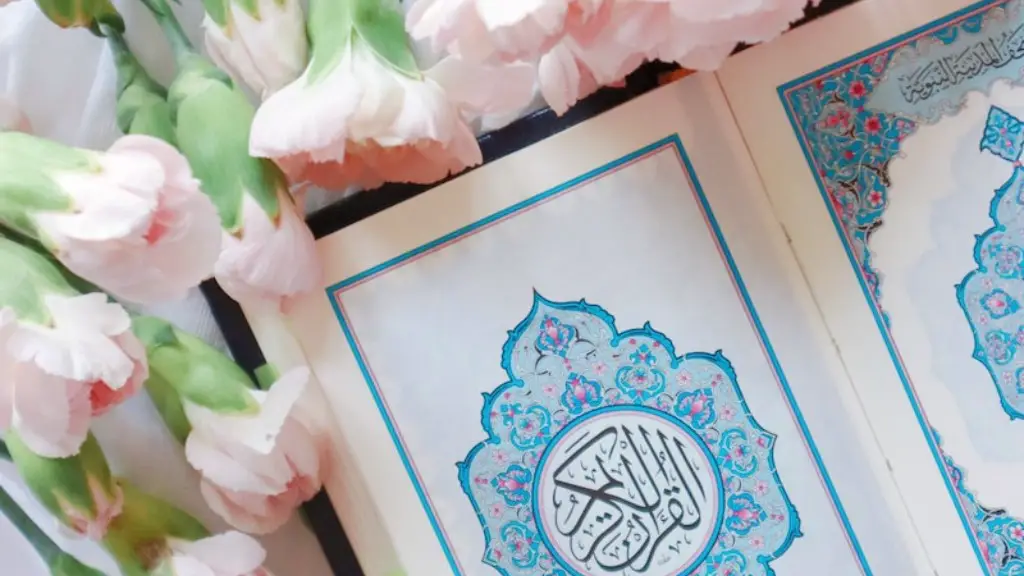Judaism is one of the oldest major world religions and is still a vibrant faith with a rich history. It has roots that span more than three thousand years and continues to evolve in the 21st century. Judaism has played a significant role in the development of ethical, moral and spiritual values in many cultures, including those of the Middle East, Europe, and North America. But what are the core beliefs of Judaism?
At the heart of Jewish beliefs is the conviction that there is only one God who is the Creator of the universe and is present in every detail of the world. This belief forms the cornerstone of Jewish life today. Jews believe that the basic laws governing human behavior are set forth in the Torah, or the Five Books of Moses, revealed to Moses by God on Mount Sinai. Jews also look to the Prophets of Israel, such as Isaiah, Ezekiel, and Jeremiah, to learn spiritual insight. Most Orthodox Jews believe in the literal truth of these texts, while other denominations honor their spirit as a source of wisdom and guidance.
One of the most important beliefs in Judaism is the idea of a covenant between God and the Jewish people. This covenant marks a lasting relationship between the two, and it is a foundation of the Jewish religion and its rituals. Jews believe that God has chosen the Jewish people to be the recipients of his laws and that He has promised them reward for following His path. This covenant creates a strong connection between Jews and their faith and encourages them to strive for higher moral and spiritual standards.
Another central belief in Judaism is that of the coming of the Messiah. Jews believe that one day there will be a Jewish redeemer who will bring peace and justice to the world. Jews also believe in the importance of the State of Israel, as it serves as a physical representation of the enduring covenant between God and the Jews. The State of Israel is frequently regarded as a holy land and a place where Jews can congregate and practice their faith.
The concept of tikkun olam, or the “repair of the world,” is another important belief in Judaism. This concept pivots around the idea that all Jews have a responsibility to make the world a better place. From social justice to practicing ethical behavior and working to promote equality, this concept provides a moral and spiritual foundation for Jews to live their lives by.
Belief in the afterlife is also a key part of Judaism. Unlike some religions, Jews do not place significant emphasis on life in the hereafter. Instead, Jews place a greater emphasis on the importance of life in this world, believing that it is a gift from God. While the afterlife is an important part of the faith, the focus is on leading a meaningful life in this world.
Learning Torah
Learning and studying the Torah is a central part of the Jewish faith. While there is divergence in opinion on the literal interpretation of the text, Jews agree the Torah is of utmost importance and an essential part of living a meaningful life. Learning the Torah is often seen as a way to strengthen the relationship between the individual and God and as a way to become closer to spirituality and holiness.
Judaism emphasizes study throughout one’s life as a way to reach a deeper understanding of the religion and draw closer to holiness. For Reform Jews, whose movement is focused on modern, progressive interpretations of Jewish faith, this emphasis on the study of Torah is translated into the pursuit of a college education and the development of personal talents to help the world.
This focus on the study of Torah and the pursuit of higher education are seen as a way to develop knowledge and understanding, which will help Jews make good choices and live a righteous life. The study of Jewish texts has traditionally been entrenched in Jewish religious life, particularly as it applies to personal prayer, communal services, and the collective observance of holidays and festivals.
Following The Mitzvot
In addition to the aforementioned core beliefs of Judaism, Jews are also bound by religious laws known as mitzvot, or commandments. These laws encompass many aspects of life and guide Jews in their everyday lives. These mitzvot arise from biblical verses, as well as from Jewish oral law, which interprets the commandments found in Scripture. Traditional Jews follow a myriad of mitzvot and laws, though the exact number of such laws varies among different sects of Judaism.
The mitzvot shape the behavior of the Jew in all areas of life, from the regulations of religious practice and communal prayer to interactions with non-Jews and the wider community. These mitzvot are seen as a sacred duty that helps establish a closer relationship with God, while they also serve to teach values that allow Jews to live better lives and treat others with compassion.
There is an obligation to observe mitzvot, but there is also an understanding that living according to the mitzvot is an ongoing struggle. This tension between taking the law seriously and recognizing its complexity is acknowledged in the Talmud, the central legal text of the Jewish faith. Jews are not expected to be perfect but are responsible to act out of concern for doing good. This nuanced approach to law places its emphasis on trying, rather than on unrealistic perfection.
Keeping Customs And Rituals
In addition to the mitzvot, Jews also practice a wide range of customs and rituals. These customs and rituals are deeply rooted in the faith and help to bring Jews closer to God and to one another. Such rituals include donning a prayer shawl, or a tallit, for daily prayer, regular visits to the synagogue for communal prayer, the yearly celebration of holidays such as Passover and Rosh Hashanah, and the annual remembrance of the Holocaust.
Other customs and rituals include the ritual of keeping kosher, the lighting of the menorah or Hanukkah candles, and various ceremonies connected to life’s milestones such as a bar or bat mitzvah. These customs and rituals serve to connect Jews to their faith and to the Jewish community, and are often seen as a source of spiritual and emotional strength.
The practice of customs and rituals also serves to further communication between Jews and God. Through the use of music, prayers, and recitations, Jews often express their love and devotion to the Creator. By engaging in the age-old customs and ritual practices, Jews connect to a larger historical and spiritual narrative, reminding them that they are part of a larger faith community, even if geographically distant.
Looking Toward The Future
The Jewish faith has withstood the test of time, yet it continues to evolve. As the 21st century brings about sweeping changes in the world, Judaism remains committed to its core set of beliefs and customs. By staying true to the ancient laws and practices of the faith, the Jewish people can continue to pass on their faith and traditions for generations to come.
At the same time, Judaism is open to examine new ideas and embrace modern interpretations of faith. Beyond its ancient tenets, Judaism encourages its followers to pursue knowledge and understanding, act with justice and compassion, and strive to make the world a better place. These ideals and aspirations continue to lead Jews to live meaningful lives and pursue spiritual fulfillment.
Modern Adaptations In Jewish Culture
In recent years, there has been a surge of interest in Judaism among younger generations of Jews. This renewed interest in the faith has led to a variety of creative efforts and innovations, with new interpretations of traditional customs, new ritual practices, and an openness to explore different approaches to faith.
The Jewish Renewal movement is one example of a modern adaptation of Jewish faith, blending traditional rituals and modern spiritual practices like meditation to cultivate a dynamic religious experience. Additionally, the Jewish feminist movement has brought an emphasis on the importance of gender equality and the fight for social justice within the context of Judaism.
These new interpretations of Judaism demonstrate the power of faith, even as the world changes. They offer a reminder that Judaism is a living, breathing faith and is open to new insights and interpretations. As Jews look to the future, their faith is a source of enduring strength, resilience, and inspiration.
The Relevance Of Jewish Ethics
For the Jewish people, ethical conduct and moral principles are an integral part of the faith. This emphasis on ethical principles is rooted in the writings in the Torah, as well as in rabbinic texts. Over the centuries, Jewish thinkers and scholars have developed an extensive corpus of Jewish ethical literature that continues to shape Jewish thinking and practice today.
In Jewish teachings, ethical behavior is not just good manners but forms the basis of a holy lifestyle and is essential to the attainment of spiritual perfection. Such teachings provide a spiritually rich foundation for ethical and moral decision-making and serve as a reminder of the value of living with integrity and kindness.
The teachings of Jewish ethics have long been a source of wisdom, as well as a source of inspiration for many outside the Jewish faith. In recent years, Jewish scholars have exported this ethical tradition to a wider audience, providing timeless insights into building a just and equitable society. Through these teachings, Jews continue to foster an environment of inclusivity, justice, compassion, and respect.
The Power Of Jewish Community
In a world that can feel divided and disconnected, Jews come together in community to deepen their understanding of the faith and foster meaningful connections with one another. This sense of community provides a platform for personal growth, as well as spiritual nourishment.
The Jewish community provides a refuge where members can draw strength and develop relationships with others. It also gives members a safe space to voice their thoughts and opinions, ask questions, and learn from one another. Through community-building initiatives, the Jewish people come together to celebrate the faith and bring meaning to their lives.
The power of the Jewish community lies in its diversity, as it brings together people from different backgrounds and experiences. This helps to create a stronger bond between members, as well as an understanding of the different perspectives of the faith. The presence of a strong, supportive Jewish community is essential for Jewish life and its significance will continue to live on for generations to come.


